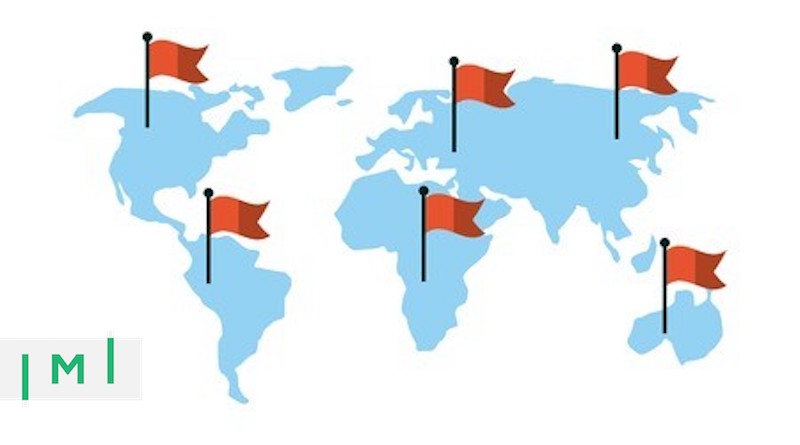It’s Time CIPs Worked With Due Diligence Firms to Redesign Applicant Vetting Procedures
It is an established fact that robust due diligence on applicants is central to sustainable citizenship by investment programs (CIPs). This is borne out by the myriad government pronouncements and published articles about the topic. A well thought out due diligence process reduces the likelihood of host countries granting citizenship to nefarious individuals with dubious backgrounds. This, in turn, results in an improved country reputation; enhancing the country’s ability to maintain and negotiate visa-free access; increasing the attractiveness of the program and passport; creating a success loop.
The key, therefore, is to engage experienced due diligence partners with an established footprint globally and in applicants’ source countries. In addition to the obvious investigative advantages (subject matter experts, human investigators, country specialization, etc.), such a partner provides the ability to give guidance on creating a due diligence methodology which takes into account the prevailing laws and practices, as well as any changes in those, in the respective countries. Before continuing, I provide below a brief description of due diligence in the context of CIP/CBI programs.
What is due diligence?
Due diligence entails research and investigation of CIP applicants and their families in countries where they would have lived for more than six months in any given year, over the last ten years. A competent due diligence partner offers a combination of desktop research and “on the ground” human intelligence to verify all personal information provided by applicants and related dependents. In addition, and most importantly, to identifying any “red flags” with respect to the application.
In the Caribbean, the due diligence process also involves CARICOM IMPACS, part of the Regional Framework for Crime and Security, through its sub-agency the Joint Regional Communication Centre (JRCC). However, for the purposes of this discussion, I’ll focus on private due diligence firms.
The investigation and research include documentation verification of key personal identification, passport, address, employment and/or profession and/or business ownership and source of funds and/or investment. The latter particularly with respect to AML/CFT. It also includes litigation, bankruptcy, regulatory and law enforcement checks, as well as public domain investigation including social media and deep web searches.
The resulting report also covers reputational risk, country (of origin) risk, politically exposed persons (PEP) status, and Global Compliance checks. Additionally, the report should not only provide the Citizenship by Investment Unit (CIU) with findings on the above areas but also an analysis of such findings and a resulting risk level determined by a detailed risk matrix. These reports and those provided by JRCC form the cornerstone of a CIU’s approval process.
Deeper Collaboration
Given the above, it is reasonable to surmise that due diligence firms would be better diligence practitioners than CIU staff.; for the most part, it is their area of specialization. And because they have operated in these jurisdictions for an extended period of time, they would have developed a more fulsome understanding of the optimum document bundle required for each jurisdiction to allow for a comprehensive investigation of applicants.
The current practice, as I have observed, is for countries to create their programs, including the due diligence process, largely based on existing laws and practices of current CIP countries. For the Caribbean region, the primary foundation legislation and practice has been that of St. Kitts & Nevis. I posit that the time has come for program administrators to collaborate with their due diligence providers, including CARICOM IMPACS, in redesigning their due diligence methodology from the ground up.
Afterall, CIP countries invite citizens from a multiplicity of countries and cultures to apply for citizenship on the basis of an investment in their country. We can all agree that laws, customs, cultural practices, and systems of government differ from country to country. Therefore, it necessarily follows that any assessment of applicants should consider their laws and cultural practices to the greatest extent possible. Of course, at all times the ability of the due diligence provider to verify the identity, address, employment status, source of funds, criminal history, PEP status, and reputation of applicants and dependents is paramount.
Due diligence firms conduct this verification process as a matter of routine and would, therefore, be well placed to recommend a document list that would be most beneficial and relevant in the jurisdiction of the subject(s) of the investigation. Put another way, the CIP document bundle should be more source-jurisdiction specific. There already exists a service provider relationship; CIUs should capitalize on the country-specific experience of these firms beyond reporting findings and risk analysis of the applicants. If approached correctly, Units could leverage this resource without additional cost.
[post_grid id=’51712′]
Thomas Anthony is a former acting Chief Executive Officer and Deputy Chief Executive Officer of the Antigua Citizenship by Investment Unit and former Global Head of Exiger’s Immigration, Citizenship and Visa division. More recently, Thomas was the Chief Executive Officer of the Grenada Citizenship by Investment Unit. He is currently Government Advisory Director at Beyond Residence & Citizenship, a leading RCBI firm.



